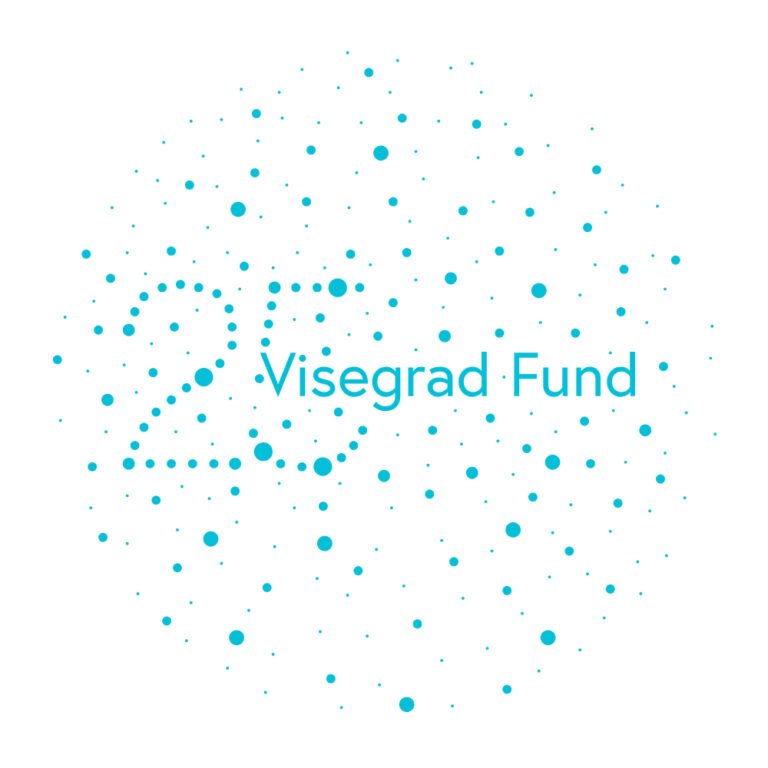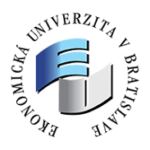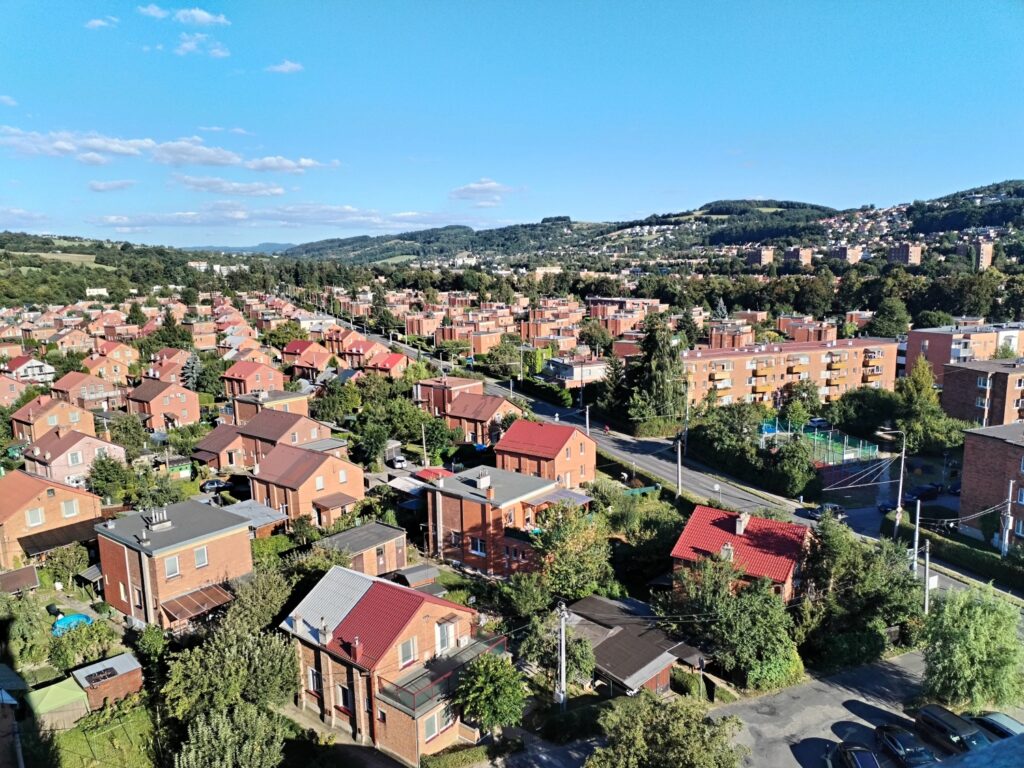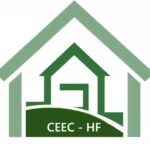Central and Eastern European Center
for Household Finance
Welcome to the Central and Eastern European Center for Household Finance (CEEC-HF)!
Our mission is to tackle vital issues in household finance. Under the broad umbrella of growing living standard concerns. We aim to focus on the housing conditions, housing affordability, retirement planning, gender and racial equality, and sustainability across all of these aspects in the Central and Eastern Europen region.
We bring together passionate researchers from diverse fields such as economics, finance, mathematics, and social sciences to drive impactful change and improve lives. Join us in our collaborative effort to grow together, create a better future, with more targetted policy planning, financial education, and sustainable living in the region.
The center creation was motivated by a Visegrad grant (#22430088), Housing market & sustainability issues linked to dominance of housing asset in retirement portfolios, (see V4-Housing page). This initiative brought together the core V4 partner teams (see The OGs page for more information on partners).

The quality of living of the elderly in Central and Eastern Europe, are also influenced by various housing market factors, including but not limited affordability, accessibility, and quality (e.g., energy efficiency). The V4 countries face significant disparities in housing conditions compared to their Western European counterparts, where the quality of housing has seen substantial advancements. Inadequate housing not only affects the physical well-being of older adults but also impacts their social integration and overall quality of life. Moreover, the low energy efficient heating and cooling solutions have material negative environmental effect, a concern for the society and the region as a whole.
Addressing these multifaceted challenges requires a concerted effort from researchers, policymakers, and stakeholders to enhance the living standards of elderly populations while ensuring financial sustainability and social equity.
Our next workshop is to be scheduled for the spring of 2025 where we plan to discuss the growing societal issues related to aging, housing market and the environment in V4 countries as the V4 initiatives celebrates 25 years, and reflect on the last 25 years of socio-economic changes of the region.
Our primary goal is to be “the” think-tank institute on Household finance topics in Central and Eastern Europe, supporting interdisciplinary dialogue and research on housing quality and affordability, with a focus on the Visegrad 4 countries: the Czech Republic, Hungary, Poland, and Slovakia. As the population ages, we face significant challenges in living standards and financial security, not only for the elderly but also for early-career individuals and young families striving to enter the housing market. This demographic shift impacts retirement savings and pension systems, requiring thorough analysis and innovative policy solutions.
We plan to foster collaborative research and information sharing on all household related topics:
aging
family planning, childcare
retirement planning
financial education
fiscal policy related to housing
fiscal policy related to family well being
pension system, private and public pensiongender equality
housing quality
housing affordability
home financing, mortgages (incl. reverse mortgage solutions)
and all other related topics.
Join us in addressing these critical issues and shaping a secure future for all generations in Visegrad 4 countries and in the greater CEEC region . Invitation is open for PhD students as well. Contact us, if you are interested in collaboration, or to be invited to our next workshop.
CEEC - HF founding team from CUB
The Household Finance Initiative for Central and Eastern Countries, launched with the support of a Visegrad 4 fund initiative, was established at Corvinus University of Budapest in 2024 to foster multidisciplinary research collaboration across V4 countries. The Center aims to address critical issues related to the aging population, including rising poverty rates, declining housing quality, housing supply shortages, environmental inefficiencies, and energy inefficiency in housing. Additionally, it seeks to tackle the growing inequality in housing affordability. While the younger generation, people at the beginning of their careers, and young families struggle to enter the housing market, the elderly often remain in large, energy-inefficient properties that are often unaffordable, further exacerbating housing affordability and quality issues.
A diverse team of researchers was formed, each bringing unique expertise to the project. Dr. Ágnes Vaskövi specializes in aging populations, focusing on the socio-economic challenges faced by the elderly. Dr. Erzsébet T. Varga contributes her knowledge on gender inequality, single-parent households, housing affordability, and overall living standards. Meanwhile, Zsuzsanna T. Vőneki and Dr. Zsuzsa R. Huszár focus on the financial aspects of the issue, analyzing the role of financial services providers and various financial services and products as possible solutions for alleviating financing constraints and creating alternative forms of pension income through reverse mortgages.
Together, this multidisciplinary team aims to provide policy recommendations to systematically and objectively address these interconnected issues with the help of researchers from the Original Collaborators (OGs) to promote social and financial sustainability in the V4 region.




Visegrad 4 Housing & Retirement challenges

In V4 countries, and in the greater Central and Eastern European (CEE) region, the overexposure to real estate in retirees’ wealth portfolios, with 70-80% of household wealth locked in property, contributes to supply shortages and deteriorating housing conditions (OECD, 2022), and sustainability concerns. Energy efficiency and housing quality are critical in V4 countries with extreme weather conditions. From the elderly perspective, there is often an acute liquidity problem where they are asset-rich and cash-poor, unable to convert housing assets into regular income. This situation is partly rooted in historical distrust in financial systems with limited capital market participation as a legacy of communist-era financial markets (Vaskövi & Jászfi, 2023; Bunce, 2012). The sudden shift to market economies in the 1990s, combined with economic instability and banking crises, further eroded public confidence in financial institutions, resulting in a strong preference for cash holdings and real estate investment (Beckmann & Mare, 2017) and under-diversification in their retirement portfolios (Koch & Scheiber, 2022).
The project aims to address critical issues related to the aging population, including rising poverty rates, declining housing quality, housing supply shortages, environmental inefficiencies, and energy inefficiency in housing. Additionally, it seeks to tackle the growing inequality in housing affordability. While the younger generation, people at the beginning of their careers, and young families struggle to enter the housing market, the elderly often remain in large, energy-inefficient properties that are often unaffordable, further exacerbating housing affordability and quality issues.
Together, the project’s multidisciplinary teams aim to provide a comparative analysis of the current housing market situation across the V4 countries and suggest alternative policy approaches from tax perspectives and by offering new financial products.
The project aims to address issues and propose policy suggestions for the following stakeholders:
- For the Elderly: The project aims to unlock passive wealth locked up in housing assets, creating alternative or supplementary pension income. This supports self-reliance and alleviates elderly poverty concerns without putting further pressure on public financing.
- For Young Individuals and Families: The project seeks to increase the available housing stock by unlocking hidden, underutilized properties. It also aims to improve the quality of housing stock by partially redistributing existing assets from the elderly to the younger generation, who are more motivated to implement upgrades and environmentally efficient heating and cooling services.
- For the Environment: The project aims to reduce pollution by decreasing inefficient heating practices, such as wood burning, and improving energy efficiency. This will lead to enhanced climate-resilient housing
- For the Government: The project aims to propose new taxes (or modification in taxes), and subsidies for the government, taking into account their impact on retirement, real estate investment and quality, and the need to balance the budget.
Thanks to our grant support we scheduled two workshops to present and discuss comparative market analysis and policy recommendation with stakeholders.
Events
We are happy to invite interested researchers to
1st International V4 Housing Market & Retirement Challenges Workshop
sponsored by the ‘Housing market & sustainability issues linked to dominance of housing asset in retirement portfolios‘ grant by the Visegrad Fund.
Date: April 14th to 15th, 2025.
Location: Corvinus University of Budapest, Main campus

Download agenda for the 1st International V4 Housing Market & Retirement Challanges Workshop.
The workshop aims to address the complex topics of housing affordability, housing shortages, housing quality, aging, and retirement challenges, along with relevant financial services, fiscal policies, and subsidies.
Day 1: The presentations will discuss important socio-economics concerns related to the housing market and aging, such as poverty among the elderly and the stress on pension systems and social safety nets. The workshop will explore social exclusion of the elderly and review the quality of housing for the elderly and the sustainability of their living environments.
Day 2: The focus will shift to the development and competitive landscape of financial markets and services related to real estate investment and retirement planning, emphasizing prudent financial planning. Additionally, the workshop will cover fiscal policies and subsidies related to housing and retirement issues faced by people in V4 countries and beyond in the CEE region.
Don’t hesitate to contact us via email if you and/or your academic research colleagues from V4 countries or the greater CEE region are interested in getting involved in research with our teams or attending our workshop in Budapest in person or online. Contact @ v4householdfin
The second V4 housing market workshop is to be hosted by the University of Economics in Bratislava (EUBA) team late September 29-30 or early October 2025. The workshop will be in Bratislava, presenting our research findings to policy makers and financial market participants.
Please contact us via email if you and/or your academic research colleagues from V4 countries or greater CEE region are interested in getting involved in research with our teams, or attending one of our workshops.
The OGs
The original academic collaborators (the OGs) of the motivated household finance research teams across V4 countries. The OGs are all recognized academic partners in the V4 grant, (# 22430088), entitled Housing market & sustainability issues linked to dominance of housing asset in retirement portfolios.

Hungarian Team 1
members
A diverse team of researchers from Corvinus University of Budapest (CUB) includes Dr. Ágnes Vaskövi, who specializes in aging populations, and Dr. Erzsébet T. Varga, a fiscal policy expert with interests in gender equality and childcare. Additionally, Dr. Zsuzsanna T. Vőneki and Dr. Zsuzsa R. Huszár focus on the financial and sustainability aspects of housing market issues in the CEEC region and beyond. The CUB team is hosting the first V4 Household finance researrch workshop April 14-15, 2025 in Budapest. The objective of the workshop is to start collaboration, organize data sharing and collection on housing market related issues, affordability, housing quality, energy efficiency, and supply.

Slovakian Team 1
members

From University of Economics in Bratislava (EUBA) a teaching-research university in Slovakia, four researchers from the Faculty of Economics and Finance, with strong retirement and household finance expertise joined the V4 household finance initiative. The Slovakian team will host an academic and policy discussion workshop in the fall of 2025 in Bratislava.
Team 1A Erika Neubauerová and Kornélia Beličková are from the Department of Finance; and
Team 1B Eva Pongrácz and Silvia Šipikalová are from Department of Social Development and Labour.

Czech Team 1
members

From Tomas Bata University in Zlin, a five member strong housing and ageing research expert team joined the initiative. The team consist of Martina Rosíková, a housing market expert, Dr. Blanka Jarolímová, a tax expert, Dr. Blanka Kameníková a financial markets expert, Dr. Vojtech Sadil a finech advicate and expert and the team leader Prof. Drahomíra Pavelková expert grant project manager (with 12 successful grants) and active researcher focusing on financial literacy and more recently ESG issues.

The Central and Eastern European Center for Household Finance (CEEC-HF), hosted at Corvinus University of Budapest (CUB), is spearheaded by the Macrofinance department researcher team: Dr. Zsuzsa R. Huszár (head), Dr. Erzsébet T. Varga, Dr. Ágnes Vaskövi, and Dr. Zsuzsanna Tamásné Vőneki.
